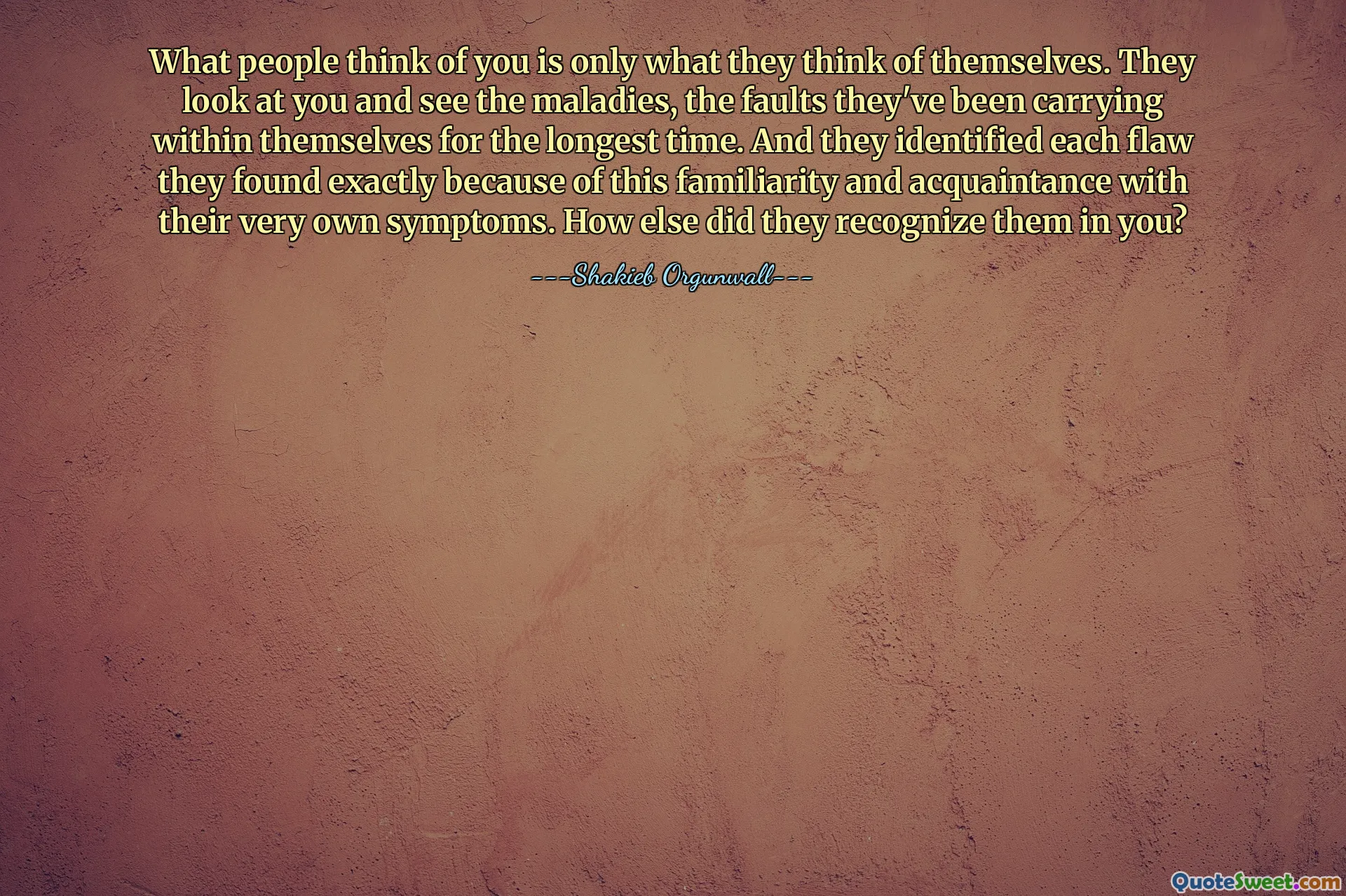
What people think of you is only what they think of themselves. They look at you and see the maladies, the faults they've been carrying within themselves for the longest time. And they identified each flaw they found exactly because of this familiarity and acquaintance with their very own symptoms. How else did they recognize them in you?
This quote delves into the psychology of perception and projection. It suggests that judgments and opinions others hold about us are often mirrors of their own internal struggles, insecurities, and unresolved issues rather than facts about us. When someone criticizes or scrutinizes, they are not necessarily revealing truths about our character but are projecting their own fears and flaws onto us. This insight encourages a sense of detachment from negative judgments, reminding us that such perceptions are colored by the other person's inner world. Understanding this can foster compassion, as it shifts the focus from feeling personally attacked to recognizing human tendencies to see oneself reflected in others. It also emphasizes the importance of self-awareness—acknowledging our own shortcomings without blame—and developing resilience against external opinions that do not align with our self-knowledge. Such awareness can lead to a healthier self-image and more empathetic interactions. Knowing that others' criticisms are often an extension of their own issues can help us to maintain composure and patience, especially when faced with unwarranted judgment or negativity. Ultimately, this quote promotes a deeper understanding of human nature, encouraging us to look beyond surface judgments and see the underlying emotional realities that drive them.






